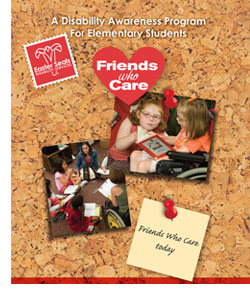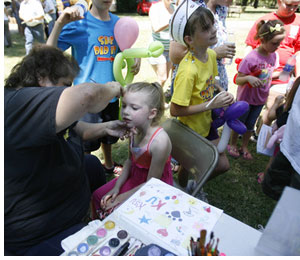Spelling out the effects of the deficit reduction plan
by Katy Beh Neas
On Tuesday, August 2, President Obama signed into law debt limit and deficit reduction legislation. White House and congressional staff tell us that the many calls and letters that Easter Seals supporters sent to Congress, as well as the visit by Easter Seals clients to the White House last month, are a big part of why Medicaid was protected in the final deal.
The federal budget process is not over yet, though. Funding for programs that support people with autism and other disabilities continues to be at risk. Tell Congress: Continue to protect services and supports for people with disabilities at all stages of the deficit reduction process.
The debt ceiling deal has several steps. First, the debt ceiling deal specifically protects from cuts to Medicaid, Medicare and Social Security. The deal calls for an immediate cut of $1 to $1.2 trillion in spending spread over the next 10 years. Programs of importance to people with autism and other disabilities such as early intervention, job training and employment will be subject to these cuts. The decisions on the specific funding levels for specific programs will be made by later this fall.
Another key element of the deal is the establishment of a congressional “Super Committee,” to be made up of 12 members of Congress who will be equally from the House and Senate and from the two political parties. All parts of the federal budget spending and revenues are on the table. The committee must form a set of recommendations by November 23, 2011 and final legislation must be sent to the president by December 23, 2011.
If the Committee’s legislation is not finalized and enacted, an across-the-board cut to all federal programs would automatically go into effect. Medicare, Medicaid, Social Security and other programs serving low-income individuals are exempt from this across-the-board cut. Congress is also required to hold a vote on a balanced budget amendment.
Office of Public Affairs staff will continue to work vigilantly to assure that cuts at any stage in this process do not negatively impact people with disabilities.








 Last Thursday was proclaimed
Last Thursday was proclaimed